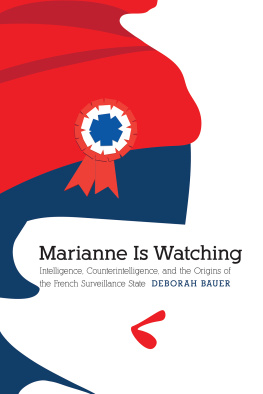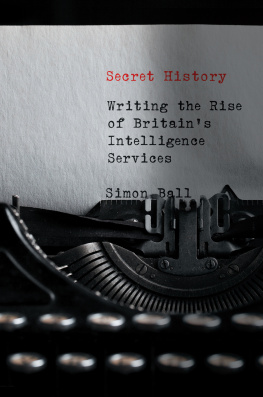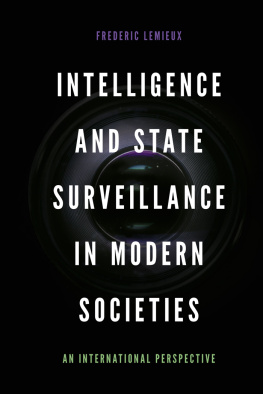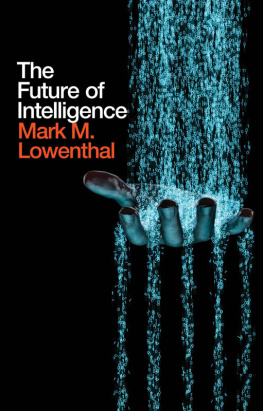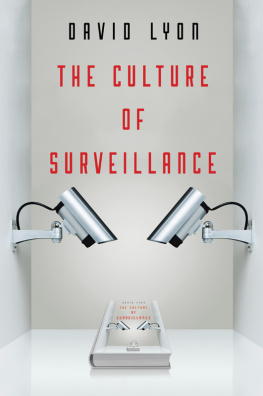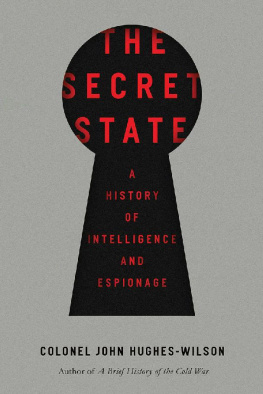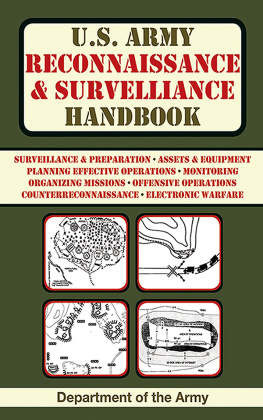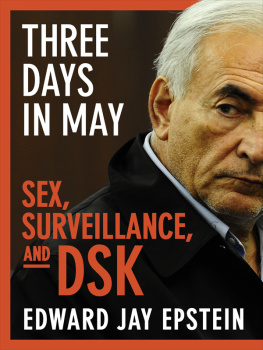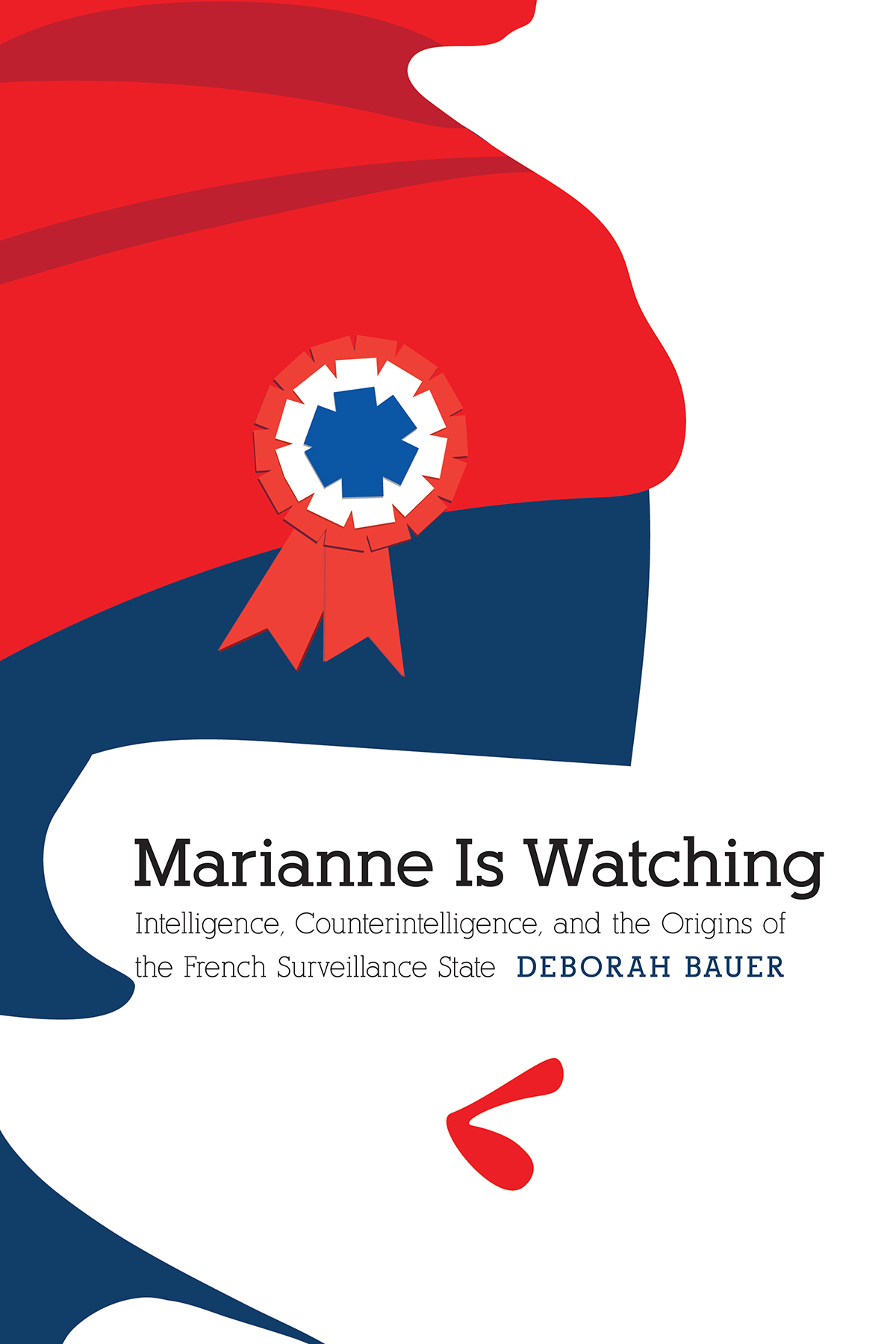
A powerful book on an important subject. Marianne Is Watching is both a political history of intelligence as a potential force multiplier in international affairs and a social history of fin-de-sicle France. This is a very impressive piece of work.
Martin Thomas, editor of The French Colonial Mind, Volumes 1 and 2
Marianne Is Watching contributes to the emergence of a new total military history. Bauers combination of meticulous multi-archival research and her ability to fuse government archives and popular writing about espionage makes her work a major advance. Connecting the internal history of military and civilian intelligence to the broader politics of the regime provides fresh insights into how military and official culture and politics shaped the life of the Third Republic. This is important work.
Andrew Orr, author of Women and the French Army during the World Wars, 19141940
Studies in War, Society, and the Military
General Editors
Kara Dixon Vuic
Texas Christian University
Richard S. Fogarty
University at Albany, State University of New York
Editorial Board
Peter Maslowski
University of NebraskaLincoln
David Graff
Kansas State University
Reina Pennington
Norwich University
Marianne Is Watching
Intelligence, Counterintelligence, and the Origins of the French Surveillance State
Deborah Bauer
University of Nebraska Press | Lincoln
2021 by the Board of Regents of the University of Nebraska
Cover designed by University of Nebraska Press; cover image Shutterstock / Tata Donets.
Acknowledgments for the use of previously published material appear in , which constitutes an extension of the copyright page.
All rights reserved
Library of Congress Cataloging-in-Publication Data
Names: Bauer, Deborah, author.
Title: Marianne is watching: intelligence, counterintelligence, and the origins of the French surveillance state / Deborah Bauer.
Description: Lincoln: University of Nebraska Press, [2021] | Series: Studies in war, society, and the military | Includes bibliographical references and index.
Identifiers: LCCN 2021010739
ISBN 9781496223722 (hardback)
ISBN 9781496229144 (epub)
ISBN 9781496229151 (pdf)
Subjects: LCSH : Intelligence serviceFranceHistory19th century. | EspionageFranceHistory19th century.
Classification: LCC JN 2738. I 58 B 384 2021 | DDC 327.1244009/034dc23
LC record available at https://lccn.loc.gov/2021010739
The publisher does not have any control over and does not assume any responsibility for author or third-party websites or their content.
For my family.
Contents
The process of advancing this project from germ of an idea to published book has been a lengthy one, and I owe thanks to many people who have helped along the way. This book began as my PhD dissertation at UCLA , where I honed my craft as a historian and engaged with countless sharp minds, all under the warm sun and towering palms of Los Angeles. My first thank-you goes to my PhD advisor, Caroline Ford, who taught, encouraged, guided, challenged, and supported me and my project throughout my graduate years and beyond. Among many other contributions, Caroline was instrumental in pushing me toward the crucial colonial dimension of early intelligence practices. She nurtured my development as a historian and as a lover of all things France, and I am incredibly grateful for her confidence in me and my work. I am also thankful for the formidable women on my dissertation committee: Debora Silverman, Lynn Hunt, and Gail Kligman. Debora Silverman met with me regularly throughout my years at UCLA , always encouraging me to think outside of the boundaries of the institutional history that my topic demanded, pushing me to contemplate intelligence in its cultural, intellectual, and even physical realms. Lynn Hunt continually challenged me to consider what it meant to be a French historian and to set French intelligence culture apart from that of neighboring countries at the same time. Lynn and her partner welcomed me at their home in Westwood for regular meetings with other graduate students to discuss our progress in research and writing and to share a convivial meal. These regular meetings stimulated the mind as well as the soul and pushed me to think of my project in many different ways. These women served and continue to serve as inspirations in their scholarship and teaching, and I am thankful for everything I have learned from them. Other professors at UCLA supported me with friendship, meals, guidance, advice, and support during those years of exploration and uncertainty, and I would like to thank in particular Russell Jacoby, Muriel McClendon, and Peter Baldwin. I was also grateful to briefly know Amy Zegart, a professor of public policy and specialist in U.S. intelligence organization, whose scholarship and teaching during the short time I worked with her impressed upon me the complicated history of professional intelligence and the excitement of seeing a brilliant woman with so much knowledge of this very masculine field.
In the years since graduation, the book morphed with continued advice and support from numerous colleagues around the country. I am grateful to have connected electronically with established scholars of intelligence including Peter Jackson and Jeffrey Burds, who encouraged me to find a focus and an audience for my work in a field that does not have a large number of researchers. I got help with arguments, improvements, revisions, and the publishing process from a number of people: Brittany Adams, David Schuster, Jeff Malanson, Paul Schmidtberger, Tom Kselman, Andrew Kopec, Rachel Schley, Stephanie Koscak, Laura Sextro, Ilyana Karthas, and Andrew Hakes. In addition to those already named, I want to thank my colleagues in the History Department at Purdue University Fort Wayne for looking at various book-related documents over the years, inquiring about and encouraging my progress, and supporting me every step of the way: Ann Livschiz, Chris Erickson, Suzanne LaVere, Teri Luce, and Rick Weiner, the best chair a young professor could ask for. A very special thanks goes to Adam ZientekAdam and I met in the bowels of the French military archives in the Chateau de Vincennes in 2008 and shared many long days and laugh-filled lunch breaks in our separate pursuit of army documents for the good part of a year. A decade later Adam has continued to enlighten my thinking and ask important questions as he read drafts of the book and helped me to get it to its final version.
I would also like to thank some teachers who nurtured my love for history as a student before this topic was anywhere on the horizon. These include the late John Fannin at the Stanley Clark School; John Merriman, my undergraduate advisor at Yale; and Dominque Kalifa of the Universit Paris 1Sorbonne, who is sadly no longer with us. Whether he realized it or not, Dominique was instrumental in transforming me from someone pursuing a matrise degree in order to prolong my student visa and remain in Paris to a lover of history desiring to make it my profession. His kindness in taking a shy American under his wing in a class of French students cannot be underestimated, and he proved a steady mentor in the year I worked with him and in the years following.
Throughout the process I have received considerable financial support that allowed me to carry out the extensive research for this book. I am thankful for several grants from the University of California, Los Angeles; one from the cole des Hautes tudes en Sciences Sociales; a James and Sylvia Thayer Research Fellowship to use special collections; a travel grant from the Hoxie Fund; and a number of research and support grants from Purdue Fort Wayne. These generous fellowships and grants facilitated several short- and long-term research trips to France, working in many archives in Paris, as well as side trips to Nancy and Nice to visit regional archives. As the days became weeks and weeks became months spent on hard chairs in archives and libraries, I am grateful that I was able to share many happy times inside and outside of working hours with fellow historians and other friends. My personal and professional life would be less full without the many kind souls who checked in on me, followed my progress, and shared glasses of wine over the years that it took to see this project to fruition. From Los Angeles to Paris to Indiana and beyond, thanks go to you all.
Next page
